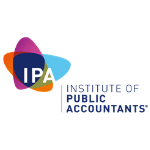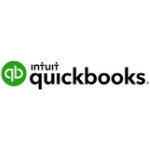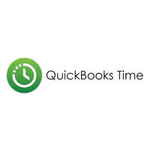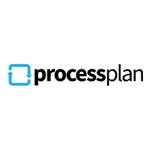Budgeting for success: the importance of good financial management
A solid budget is the foundation for your company’s financial management and success. Here are 4 ways to stay in control of your business budgeting
When you’re operating and managing a small business, you have a finite pot of cash to work with. Because of this, it’s incredibly important to manage your cash well and to have clear budgets and spending limits for every area of your business operations.
Let’s take a look at why budgeting is such a vital part of your financial management, and what you can do to keep your company on budget and in a positive cashflow position.
4 ways to stay in control of your business budgeting
It’s impossible to run a successful business without having a tight rein over your expenditure.
Sales may be bringing in healthy revenues, but the income and profits you’re generating can quickly be eaten up if you’re overspending on operational costs, marketing campaigns, staff payroll or investments in new hardware and software.
We’ve highlighted four ways to put good, solid budgeting at the heart of your financial process:
1. Embrace the power of budgeting
A well-crafted business budget gives you the foundations to become a financially healthy and successful business that’s in control of its spending.
You don’t have to use a complicated budgeting app; a simple breakdown of income and expenses in an Excel spreadsheet can be a great starting point.
To get started:
- Track your projected sales, so you understand your future revenue numbers and have a solid projection for your income over the course of the year, or budget period.
- Calculate your costs, including fixed costs like rent and utilities, and variable costs like inventory and marketing. This gives you an understanding of your total expenditure. Don't forget to factor in business taxes and contingency funds to cover emergencies.
- Set clear budgets for the coming period’s spending, based on the total income you’ve predicted and the total fixed and variable costs you’ve estimated. Always leave some wriggle room to account for inflation and changing costs.
- Regularly review your budget, the document is always evolving. Reviewing and updating your budget helps you stay on track, identify areas for cost-cutting, and make informed decisions about resource allocation. Remember, a budget is a living document, so adapt it as your business evolves.
2. Track your budgets, income and spending
Setting the budget isn’t the end of the process. It’s important to track all income and expenses and to update your budget in line with the current health of your business finances.
Using the latest cloud accounting software can work wonders. These cloud tools help you record your incoming and outgoing transactions in real time, so you can work with the most up-to-date numbers and financial data when reviewing and reworking your budget.
To improve your tracking:
- Use codes to categorise your expenses – the Chart of Accounts in your accounting software makes it easy to categorise each expense as it’s incurred. It’s then easy as ABC to review your financial reports and to analyse your spending patterns.
- Review your spending – check your spending against each code and see where budgets are on track, or where there’s overspending that’s threatening your budget. Are there subscriptions you can cancel? Or could you renegotiate rates with your vendors?
- Plan for seasonal trends and patterns – tracking your income and expenditure helps you to spot, predict and plan for the financial ups and down you’ll experience over the year. The more you understand your cashflow, the better equipped you are to stay on budget, make solid strategic financial decisions and avoid unexpected shortfalls.
3. Separate your personal and business finances
It’s tempting to think of the money in the business as ‘your money’. But it’s crucial to have a clear divide between the company’s money and your own money, as an owner and director.
Here’s why that separation is important:
- Open a dedicated business bank account – all the cash you generate, supplier bills you pay and transactions you carry out will be logged through this account. This keeps your own cash and your business cash entirely separate.
- Track your business expenses – by having separate business and personal bank accounts, you can easily track your business expenses and manage your budgets. There’s no confusion around personal expenses that could potentially muddy the water.
- Consider getting a business debit card – a business card helps you to pay for business-related costs directly from your business bank account. This helps you to track your expenses and keep a closer eye on your budget.
4. Forecast for the future: don't just track the past
Basing your budget and financial strategy on historic data is a great foundation stone. But you can also use this data to project the data forwards in time and create useful forecasts.
For example, you can:
- Get clear cashflow forecasts – based on your historical sales trends and projected expenses, you can quickly estimate your future cashflow. Having this view of your future cash position is extremely helpful when setting out your budget for the period.
- Plan out your budgets and cash management – with forecasts at your fingertips, you can plan for seasonal fluctuations, identify potential funding needs and make informed decisions about the short, medium and long-term strategy of the business.
- Be ahead of the curve – with solid budgets, forecasts and a great overview of your finances, you can be more in control as a business owner. Whatever the market throws at you, you’re better prepared, agile and ready to respond.
Talk to us about getting on top of your budgeting
Financial management can be overwhelming, especially if you’re new to running a business. But don't be afraid to seek help from a qualified accounting professional.
As your adviser, we can:
- Streamline your record-keeping, bookkeeping and financial reporting.
- Give guidance on budgeting, forecasting and financial management.
- Ensure your cashflow and budgets are always looking positive and healthy.
Let’s sit down and talk about getting your budgets and financial management in order.
Get in touch now to talk about budgeting.
Haslam Consulting & Accounting acknowledges Traditional Owners of Country throughout Australia and recognises the continuing connection to lands, waters and communities.
We pay our respect to Aboriginal and Torres Strait Islander cultures; and to Elders past and present.
Haslam Consulting & Accounting | Privacy Policy | Website by A Top Idea - Business Solutions - Toowoomba















